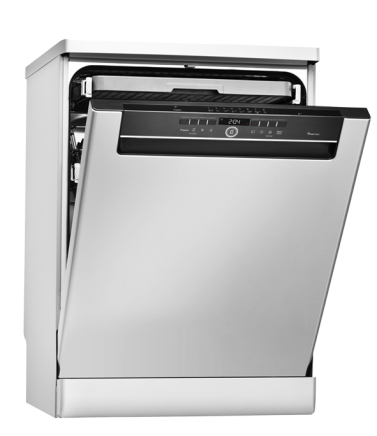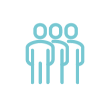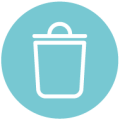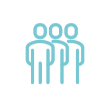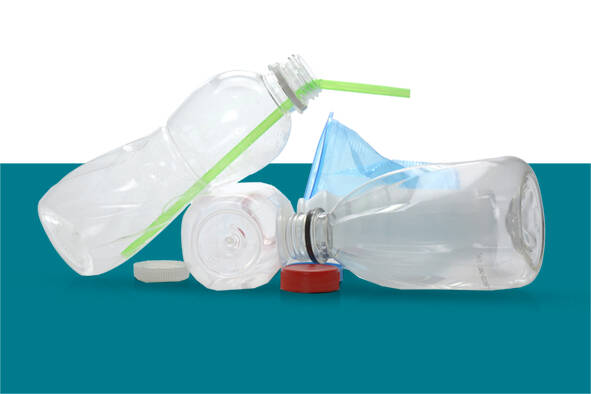

SCROLL

Awareness
Goals?
To establish an online community based around the smart meters and Circular South app, and to bring about an offline community in circuit.
How?
The 7E model.
Who?
Volunteer residents from New South and Antwerp South who came together to think about and try out how they could live a sustainable and circular lifestyle.

Results

Evaluation
People like getting to know their neighbours. The social motivation appeared to be the most important incentive for new residents to participate in Circular South. Just bringing neighbours together was not enough; think for example about an info session. The recruitment worked best when there was also something to experience, such as: the vintage market, the bike repairs on the street, breakfast sessions and aperitifs
You have more chance of behavioural change and a group feeling with concrete, tangible initiative when people immediately see the results. Examples include the invitation to repair broken things. Have visible incentives from the start, such as an app they can experiment with, and solar installations and batteries that are already installed and working. People are reluctant to commit to something that needs to be fully developed.
Approach residents personally. The Circular South community manager put a great deal of time into one-on-one discussions and conversations with the residents. To inform them, to respond to their questions and concerns, and to map out their interests. This approach paid off.
Provide sufficient, lively and visible meeting places. Instead of the planned 1,350-m2 space, the community centre had to use two pop-up containers on the Plein Publiek event location. The space was too small for some activities. The containers were also a full kilometre from the first buildings, too far for a lot of residents and random passers-by and too far out of sight to attract new participants.
Not knowing
Insight
© ELISBETH VAN LENT
Concern
Exploratory
behaviour
Set behaviour
Intention
Recruitment communication:
In order to build up the community, we organised the ‘Samen Slim Wonen’ (or Smart Living Together) information sessions in 2018 and 2019 and provided new residents with welcome packages via the project developer. When the coronavirus struck, we brought the residents together online with e-peritifs. Residents of New South also received our newsletter, invitations for all activities and information about the neighbourhood energy group.
Online community:
We installed smart meters, which were used by the Circular South app, at the homes of 61 residents. They came together in our app labs to shape and improve the Circular South app.
Offline community:
There was a highly engaged group of residents who were regularly present at the activities and for whom we had great hopes; we hoped they would take initiative themselves. This saw the development of, among other initiatives, “GesprekSTOF”, a weekly sewing and chatting evening among neighbours.
For the process, we happily refer you to all circuit activities. From the weekly repair service and the plastic-free festival to the group purchase of sustainable materials.
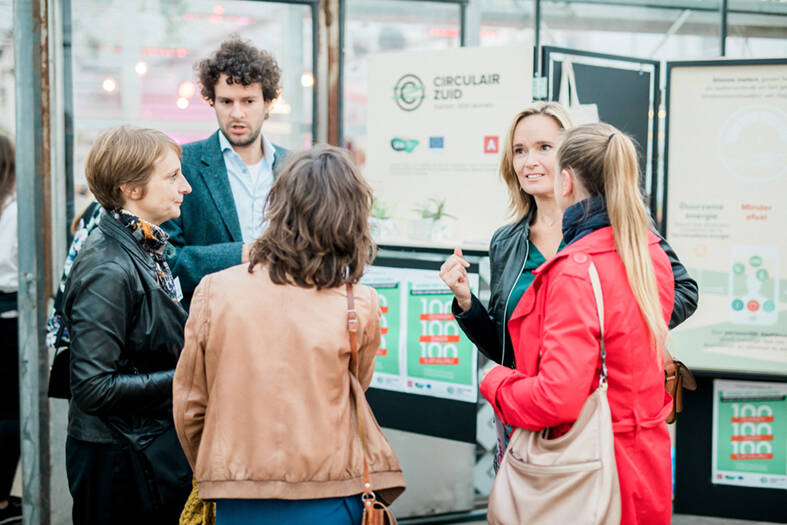
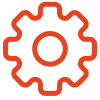
Process
COMMUNITY
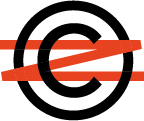
The results
Set behaviour

Goals?
To establish an online community based around the smart meters and Circular South app, and to bring about an offline community in circuit.
How?
The 7E model.
Who?
Volunteer residents from New South and Antwerp South who came together to think about and try out how they could live a sustainable and circular lifestyle.
Not knowing
Awareness
Concern
Insight
Intention
Exploratory
behaviour

People like getting to know their neighbours. The social motivation appeared to be the most important incentive for new residents to participate in Circular South. Just bringing neighbours together was not enough; think for example about an info session. The recruitment worked best when there was also something to experience, such as: the vintage market, the bike repairs on the street, breakfast sessions and aperitifs
You have more chance of behavioural change and a group feeling with concrete, tangible initiative when people immediately see the results. Examples include the invitation to repair broken things. Have visible incentives from the start, such as an app they can experiment with, and solar installations and batteries that are already installed and working. People are reluctant to commit to something that needs to be fully developed.
Approach residents personally.
The Circular South community manager put a great deal of time into one-on-one discussions and conversations with the residents.
To inform them, to respond to their questions and concerns, and to map out their interests. This approach paid off.Provide sufficient, lively and visible meeting places. Instead of the planned 1,350-m2 space, the community centre had to use two pop-up containers on the Plein Publiek event location. The space was too small for some activities. The containers were also a full kilometre from the first buildings, too far for a lot of residents and random passers-by and too far out of sight to attract new participants.

Evaluation

Results
Recruitment communication:
In order to build up the community, we organised the ‘Samen Slim Wonen’ (or Smart Living Together) information sessions in 2018 and 2019 and provided new residents with welcome packages via the project developer. When the coronavirus struck, we brought the residents together online with e-peritifs. Residents of New South also received our newsletter, invitations for all activities and information about the neighbourhood energy group.
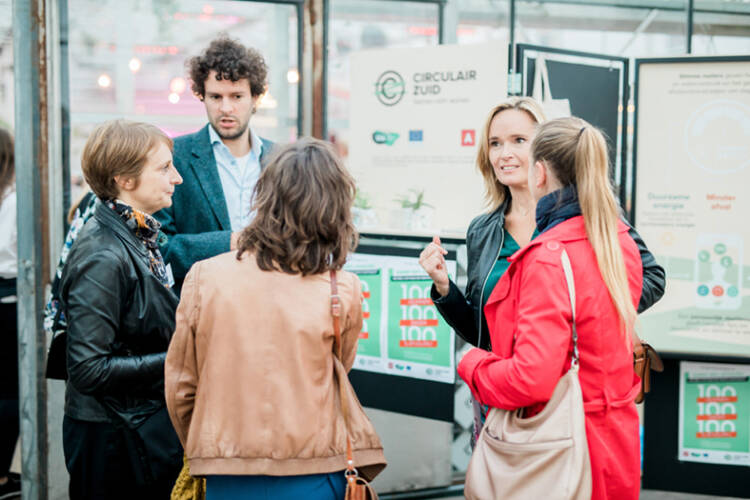
© ELISBETH VAN LENT
Online community:
We installed smart meters, which were used by the Circular South app, at the homes of 61 residents. They came together in our app labs to shape and improve the Circular South app.
Offline community:
There was a highly engaged group of residents who were regularly present at the activities and for whom we had great hopes; we hoped they would take initiative themselves. This saw the development of, among other initiatives, “GesprekSTOF”, a weekly sewing and chatting evening among neighbours.

Process
For the process, we happily refer you to all circuit activities. From the weekly repair service and the plastic-free festival to the group purchase of sustainable materials.
The results

